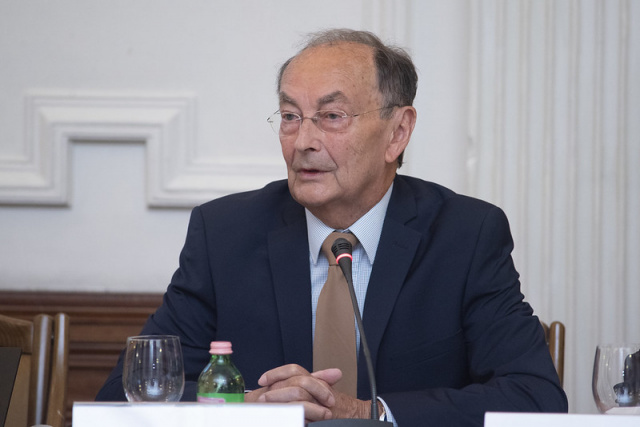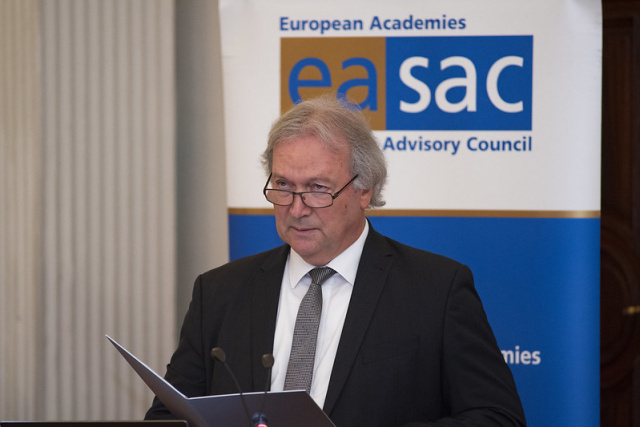EASAC Council meets in Budapest as Hungary prepares for the upcoming presidency of the Council of the European Union
The Hungarian Academy of Sciences (MTA) hosted the Council Meeting of the European Academies’ Science Advisory Council (EASAC) in Budapest on 6 and 7 June 2024.
Welcome addresses were delivered by MTA President Tamás Freund and MTA Vice-President György Kosztolányi, who is also MTA’s representative on the EASAC Council.
The EASAC Council has traditionally held its meeting in the country which is about to take over the next presidency of the Council of the European Union, with a high-level government representative from the host country invited to make a presentation.
 György Kosztolányi Photo: mta.hu / Tamás Szigeti
György Kosztolányi Photo: mta.hu / Tamás SzigetiMinister of Culture and Innovation János Csák accepted the joint invitation from EASAC President Wim van Saarloos and MTA President Tamás Freund to address the EASAC Council on the science and innovation priorities on the agenda of the Hungarian presidency of the Council of the European Union. Alongside presidents, vice-presidents and senior officials of European academies, Deputy Secretary of State László Bódis, from the Hungarian Ministry of Culture and Innovation, as well as the President of the Hungarian Research Network, Balázs Gulyás, were also in attendance.
On the first day of the meeting, EASAC presented a report on the engagement of its member academies and the broadening of EASAC’s diversity, which was followed by the individual progress reports of EASAC’s three programmes: Energy, Biosciences and Public Health, and Environment. On the second day, topics included members’ reports on the local outreach of EASAC’s work, a presentation of the plans for the 2024 World Science Forum (WSF) hosted by MTA, and EASAC’s involvement in the upcoming SAPEA project on the use of Artificial Intelligence in the Scientific Advice Mechanism (SAM). EASAC will formally rejoin the Science Advice for Policy by European Academies (SAPEA) with the start of SAPEA 3 in early 2025, with a project duration up to five years. SAPEA 3 will comprise six European Academy Networks: Academia Europaea, ALLEA, Euro-CASE, EASAC, FEAM and YASAS, and will be coordinated by LMU Munich.
The one-and-a-half day meeting provided many opportunities for formal and informal discussions on issues such as science policy advice, cooperation with other international organisations and European science networks, the initiatives and/or challenges concerning Artificial Intelligence in research and science advice faced by each academy, the code of ethics, and an updated communication strategy for EASAC.
According to the decision of the EASAC Council, the next meeting will be virtual and will be held on 23 October 2024 via Zoom. The next in-person Council meeting will be held in Warsaw on 12-13 June 2025.

